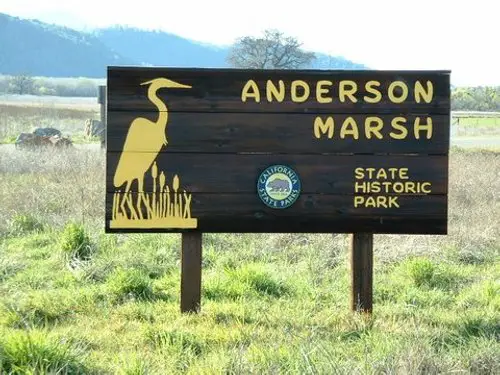
LOWER LAKE – Supporters of state parks are remaining cautious about Gov. Arnold Schwarzenegger's Friday announcement that he won't close more than 100 parks around the state, including Anderson Marsh State Historical Park in Lower Lake.
On Friday, Schwarzenegger announced a plan to keep the parks open without increasing the Department of Parks and Recreation budget appropriation.
That sounds like good news for parks like Anderson Marsh, which just hosted the fourth annual Old Time Bluegrass Festival and is an important center of outdoor activities for residents and visitors alike.
But the California State Parks Foundation, which advocates for the parks, said Friday that they're concerned about Schwarzenegger's proposals, which include some partial closures and which, ultimately, they said is a “clever way to get political cover” on what has proved to be a powerful statewide issue.
The statement from the Governor's Office explained that, following the passage in July of the budget reduction, Schwarzenegger told the Department of Parks and Recreation and the Department of Finance to work together on a plan to achieve $14.2 million in budget savings in the current fiscal year while, at the same time, mitigating the number of park closures.
“Working closely with my Departments of Finance and Parks and Recreation, we have successfully found a way to avoid closing parks this year,” said Schwarzenegger. “This is fantastic news for all Californians.”
A memorandum from Ruth Coleman, director of the Department of Parks and Recreation, and Ana Matosantos, chief deputy director of the Department of Finance, to Chief Deputy Cabinet Secretary Paul Feist outlined an alternative solution to closing parks.
Coleman and Matosantos proposed that parks can achieve one-time budget savings to address the state's fiscal crisis by reducing ongoing maintenance for the remainder of the 2009-10 budget year and eliminating all major equipment purchases, such as vehicle replacements.
Both of those proposals would save an estimated $12.1 million.
Another suggestion is service reductions.
Coleman and Matosantos proposed reducing hours as well as days of operation at most state park units, along with reducing expenditures on seasonal staff, and reducing staffing and operations at headquarters, for an estimated $2.1 million in savings.
They proposed closing some facilities on weekdays and opening them on weekends and holidays, and closing portions of other units, such as parts of campgrounds.
In the case of parks with multiple campgrounds, they may close a campground or day use facility for a partial closure, while parks that currently close for seasonal conditions would have their closures extended.
The proposal included planning in order to “minimize disruptions to visitors, achieve cost savings and maintain park fee revenues.”
They also suggested that, in order to achieve the $22.2 million of ongoing future General Fund savings that was included in the 2009 Budget Act, Schwarzenegger's administration can explore various solutions for inclusion in the Jan. 10, 2010, budget “to generate ongoing budget savings while minimizing full and complete park closures.”
Gae Henry, secretary of the Anderson Marsh Interpretive Association Board of Directors, said she's just as concerned for the park as she was before the governor's announcement.
Henry, who also is one of the Old Time Bluegrass Festival's event coordinators, took part in a Sept. 24 conference call with about 30 state park associations and supporters, at which time they discussed strategy for the future.
“I believe that what the governor has just done does not mean that our parks are 'saved,'” Henry told Lake County News. “I do believe possible legal issues as well as intense public pressure have influenced him and this is good.”
Henry urged community members not to stop and think the fight is over, but to keep the pressure on to keep Anderson Marsh open.
She said the park's area has had more than 12,000 years of continuous human habitation, a point she made at a Sept. 22 hearing on keeping the parks open, at which more than 150 people gathered.
Henry said Anderson Marsh has more than 900 acres, access is by water and land, archaeological and American Indian sites, a nature preserve and an historic ranch house complex, all of which she and other volunteers are fighting to keep open and available to visitors.
E-mail Elizabeth Larson at This email address is being protected from spambots. You need JavaScript enabled to view it. . Follow Lake County News on Twitter at http://twitter.com/LakeCoNews .